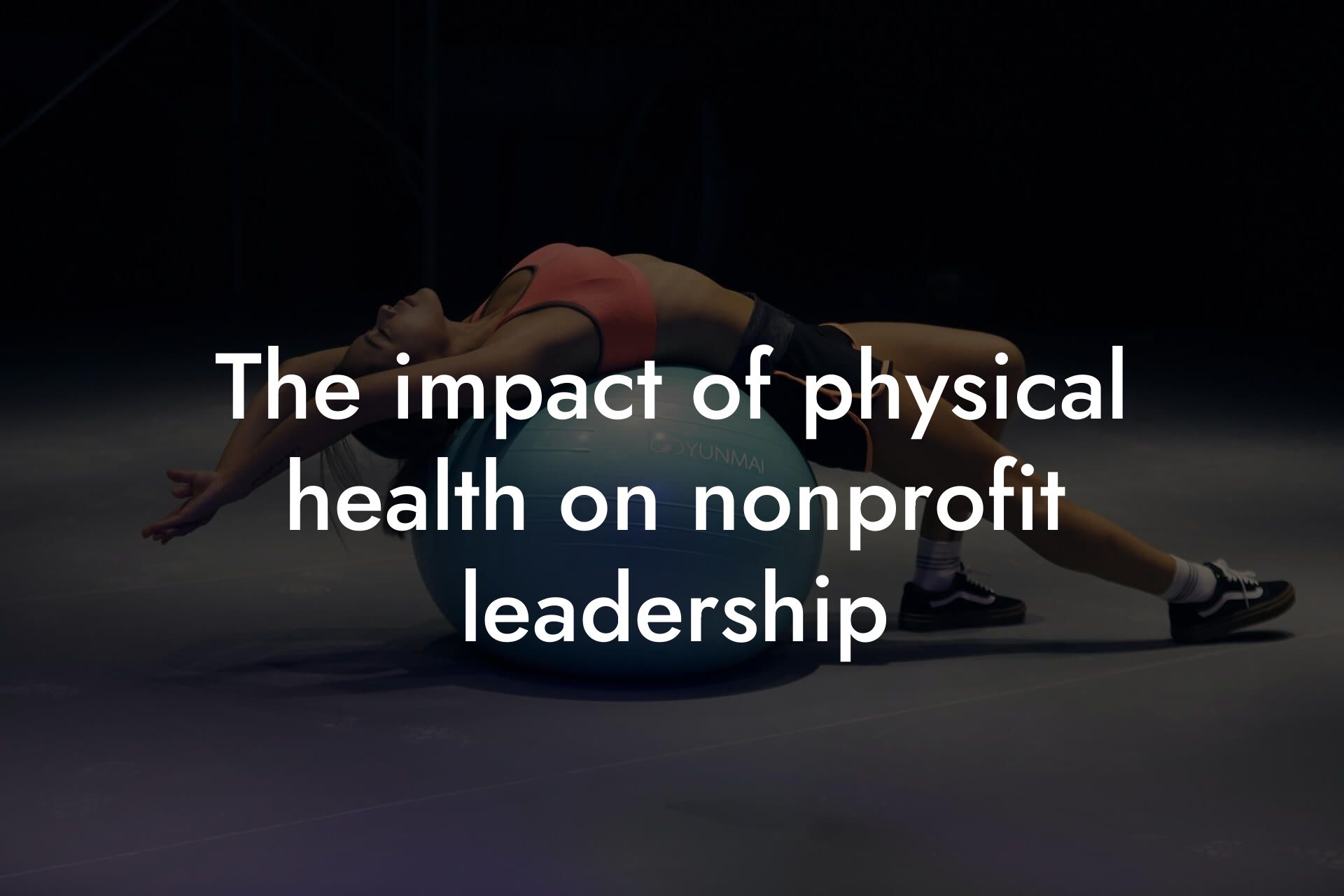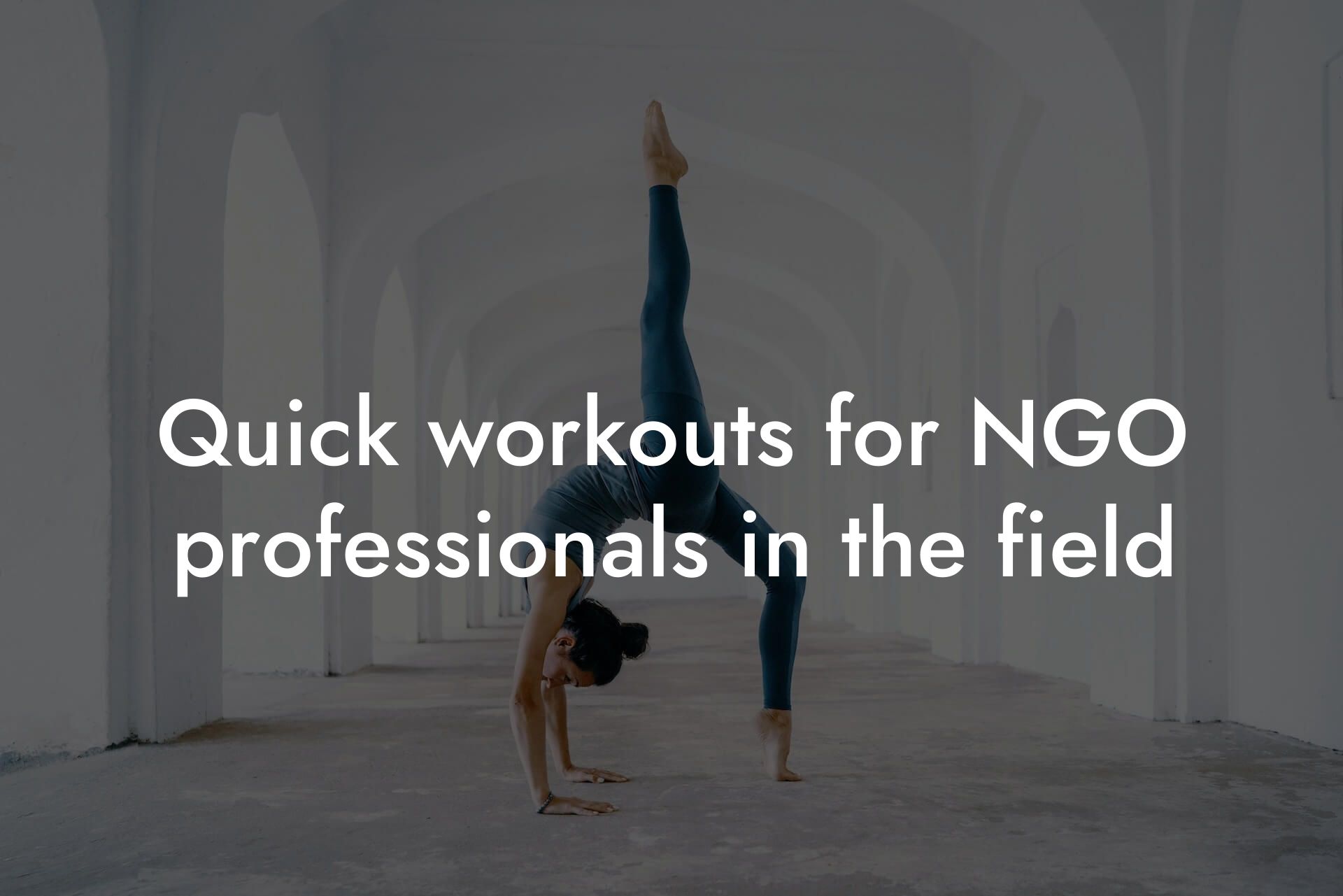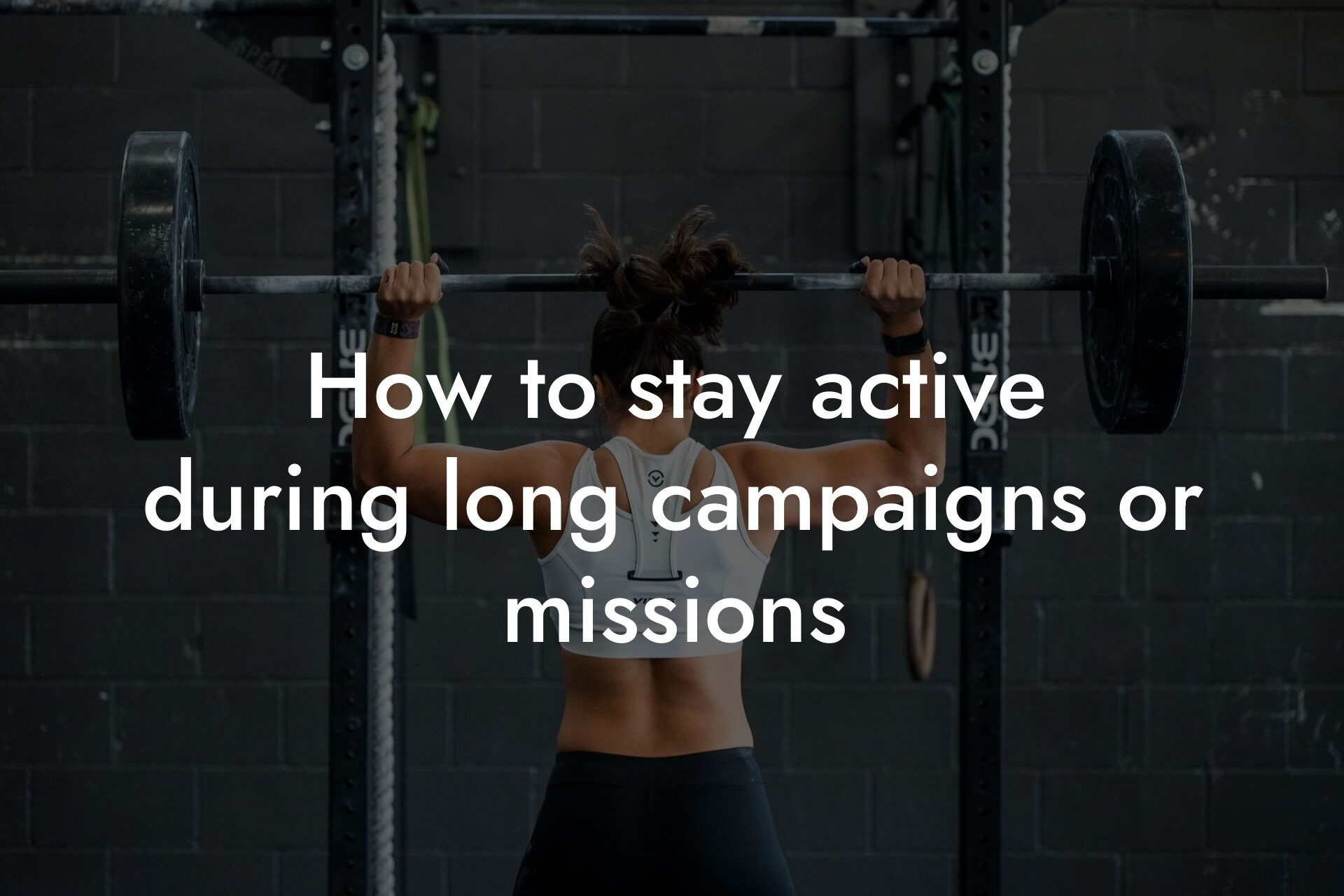As a nonprofit worker, you're no stranger to demanding schedules, tight deadlines, and high-pressure situations. While your work is crucial to making a positive impact, it can also take a toll on your physical and mental well-being. Staying fit and healthy is essential to maintaining your energy, focus, and overall quality of life. However, it can be challenging to prioritize your own health when you're busy changing the world. In this article, we'll explore the unique challenges nonprofit workers face in staying fit, and provide practical tips and strategies to help you overcome them.
Table of Contents
- The Challenges of Staying Fit as a Nonprofit Worker
- Why Fitness Matters for Nonprofit Workers
- Simple Exercises for Busy Nonprofit Workers
- Healthy Eating on a Budget
- Time-Efficient Fitness Strategies
- The Importance of Self-Care for Nonprofit Workers
- Using DEXA Scans to Track Your Progress
- Frequently Asked Questions
The Challenges of Staying Fit as a Nonprofit Worker
Nonprofit work is often characterized by long hours, limited resources, and high levels of stress. These factors can make it difficult to prioritize your own health and fitness. Some common challenges nonprofit workers face include:
Long hours and irregular schedules, making it hard to establish a consistent exercise routine
Limited access to healthy food options, leading to reliance on convenience foods and snacks
High levels of stress, which can lead to burnout and decreased motivation to exercise
Limited budgets, making it difficult to invest in gym memberships or fitness classes
Feeling guilty about taking time for yourself, when there's always more work to be done
Why Fitness Matters for Nonprofit Workers
Despite the challenges, staying fit is crucial for nonprofit workers. Regular exercise and healthy habits can help:
Boost energy levels and reduce fatigue
Improve mental clarity and focus
Enhance creativity and problem-solving skills
Reduce stress and anxiety
Improve overall mood and well-being
Increase productivity and efficiency
Simple Exercises for Busy Nonprofit Workers
You don't need to be a fitness enthusiast or have hours to spare to stay active. Here are some simple exercises you can do anywhere, anytime:
Desk stretches: Take breaks to stretch your neck, shoulders, and back
Bodyweight exercises: Do push-ups, squats, and lunges during commercial breaks or while waiting for meetings to start
Walking meetings: Turn meetings into walking sessions to get some fresh air and exercise
Stair climbing: Take the stairs instead of the elevator to get your heart rate up
Yoga and meditation: Practice simple yoga poses and meditation techniques to reduce stress and increase focus
Healthy Eating on a Budget
Eating healthy doesn't have to break the bank. Here are some tips for healthy eating on a budget:
Meal prep: Cook meals in bulk and freeze for later
Shop smart: Buy in season, shop at local farmers' markets, and use coupons
Pack snacks: Bring healthy snacks like nuts, fruits, and energy bars to work
Use leftovers: Turn last night's dinner into tomorrow's lunch
Drink plenty of water: Stay hydrated and reduce reliance on sugary drinks
Time-Efficient Fitness Strategies
As a nonprofit worker, your time is valuable. Here are some time-efficient fitness strategies to help you stay fit:
High-intensity interval training (HIIT): Short, intense workouts that can be done in 20-30 minutes
At-home workouts: Use online resources and apps to guide your workouts at home
Early morning workouts: Get your exercise out of the way before the workday begins
Lunch breaks: Use your lunch break to fit in a quick workout or walk
Find a workout buddy: Stay motivated and accountable with a workout partner
The Importance of Self-Care for Nonprofit Workers
Self-care is not selfish. In fact, it's essential to maintaining your physical and mental well-being. Here are some self-care strategies to prioritize:
Schedule downtime: Make time for relaxation and rejuvenation
Prioritize sleep: Aim for 7-8 hours of sleep per night
Take breaks: Take short breaks throughout the day to stretch, move, and rest
Seek support: Lean on colleagues, friends, and family for emotional support
Practice gratitude: Reflect on the positive aspects of your work and life
Using DEXA Scans to Track Your Progress
As a nonprofit worker, you're likely no stranger to data and metrics. But have you considered using data to track your own fitness progress? DEXA scans provide a comprehensive body assessment, giving you valuable insights into your body composition, bone density, and more. By tracking your progress with DEXA scans, you can:
Identify areas for improvement
Set realistic fitness goals
Monitor your progress over time
Make data-driven decisions about your fitness routine
Stay motivated and accountable
Staying fit as a nonprofit worker requires creativity, flexibility, and prioritization. By understanding the challenges you face, and implementing simple exercises, healthy eating habits, and time-efficient fitness strategies, you can maintain your physical and mental well-being. Remember to prioritize self-care, and consider using DEXA scans to track your progress. By taking care of yourself, you'll be better equipped to make a positive impact in the world.
Frequently Asked Questions
What are the common challenges nonprofit workers face in staying fit?
Nonprofit workers often face demanding schedules, tight deadlines, and high levels of stress, making it difficult to prioritize their physical health and fitness. Additionally, many nonprofit workers may have limited access to healthy food options, gyms, or other fitness resources, further exacerbating the challenge.
How can I prioritize my fitness goals when I have a busy schedule?
Start by scheduling your workouts into your daily planner or calendar, just as you would any other important task. Even small amounts of physical activity, such as taking the stairs instead of the elevator or going for a short walk during lunch, can make a significant difference. Make fitness a non-negotiable part of your daily routine.
What are some quick and effective workouts I can do during my lunch break?
Bodyweight exercises, such as push-ups, squats, and lunges, are great options that require minimal equipment and can be done in a short amount of time. You can also try high-intensity interval training (HIIT) workouts, which involve short bursts of intense exercise followed by brief periods of rest.
How can I stay motivated to exercise when I'm feeling exhausted?
Remind yourself why you started exercising in the first place. Whether it's to improve your overall health, increase your energy levels, or feel more confident, keeping your goals in mind can help motivate you to keep going. Additionally, find an exercise buddy or accountability partner to help keep you motivated and on track.
What are some healthy snack options I can keep at my desk?
Nuts, seeds, dried fruits, and energy bars are all healthy snack options that are easy to keep at your desk. You can also try keeping a small fridge or cooler at your desk stocked with fruits, vegetables, and hummus.
How can I get enough sleep when I have a demanding schedule?
Aim for 7-9 hours of sleep each night and establish a consistent bedtime routine to help improve the quality of your sleep. Avoid caffeine and electronics before bedtime, and create a relaxing sleep environment by keeping your bedroom cool, dark, and quiet.
What are some stress-reducing techniques I can use during the workday?
Deep breathing exercises, meditation, and yoga can all help reduce stress and improve your overall well-being. Take short breaks throughout the day to stretch, move your body, and practice mindfulness.
How can I stay hydrated when I'm busy?
Keep a water bottle at your desk and aim to drink at least 8 cups (64 ounces) of water each day. You can also try infusing your water with fruits or herbs for added flavor and nutrition.
What are some healthy meal prep options for busy nonprofit workers?
Salads, soups, and stir-fries are all healthy meal prep options that can be made in advance and reheated as needed. You can also try meal prepping on the weekends or one day a week to save time during the week.
How can I fit in a workout when I have a long commute?
Try doing bodyweight exercises or stretching on the bus or train, or listen to a fitness podcast or audiobook to stay motivated. You can also try breaking up your commute into smaller chunks, such as getting off the bus a few stops early and walking the rest of the way.
What are some benefits of prioritizing fitness as a nonprofit worker?
Prioritizing fitness can improve your overall health and well-being, increase your energy levels, and enhance your productivity and focus. It can also help reduce stress and improve your mood, making you a more effective and efficient nonprofit worker.
How can I get my colleagues on board with prioritizing fitness?
Start a workplace fitness challenge or wellness program, or simply invite your colleagues to join you for a walk or workout during lunch. You can also try sharing healthy recipes or fitness tips with your colleagues to encourage them to prioritize their health and fitness.
What are some free or low-cost fitness resources available to nonprofit workers?
Many gyms and fitness studios offer discounted rates for nonprofit workers, and some even offer free classes or trials. You can also try using free fitness apps, such as Nike Training Club or JEFIT, or following fitness influencers on social media for workout inspiration and motivation.
How can I prioritize self-care when I'm busy?
Make self-care a non-negotiable part of your daily routine, just like brushing your teeth or taking a shower. Whether it's reading a book, taking a relaxing bath, or simply taking a few deep breaths, prioritize activities that nourish your mind, body, and soul.
What are some healthy habits I can develop to improve my overall fitness?
Developing healthy habits such as regular exercise, healthy eating, and adequate sleep can all improve your overall fitness. You can also try incorporating stress-reducing activities, such as meditation or yoga, into your daily routine.
How can I stay accountable to my fitness goals?
Find an accountability partner or fitness buddy to help keep you motivated and on track. You can also try tracking your progress through a fitness journal or app, or setting specific, measurable goals for yourself.
What are some common mistakes nonprofit workers make when trying to stay fit?
Common mistakes include trying to do too much too soon, not listening to your body, and not making fitness a priority. Remember to start slowly, be gentle with yourself, and make fitness a sustainable and enjoyable part of your lifestyle.
How can I make fitness a sustainable part of my lifestyle?
Make fitness a habit by incorporating it into your daily routine and finding activities you enjoy. Aim to make progress, not perfection, and celebrate small victories along the way.
What are some fitness myths that nonprofit workers should be aware of?
Common fitness myths include the idea that you need to spend hours at the gym to see results, or that you need to be a certain age or fitness level to start exercising. Remember that every body is different, and that even small amounts of physical activity can make a significant difference.
How can I stay motivated to exercise during the winter months?
Find indoor workout options, such as online fitness classes or indoor cycling, to stay active during the winter months. You can also try finding a workout buddy or accountability partner to help keep you motivated.
What are some healthy ways to reward myself after reaching a fitness milestone?
Reward yourself with non-food items, such as a new workout outfit or a massage, or try doing something fun and active, such as going for a hike or trying a new sport.
How can I prioritize my fitness goals when I have a lot of other responsibilities?
Remember that taking care of your physical health is essential to being able to fulfill your other responsibilities. Make fitness a priority by scheduling it into your daily planner or calendar, and remember that even small amounts of physical activity can make a significant difference.
What are some fitness resources available specifically for nonprofit workers?
Many organizations, such as the National Nonprofit Association, offer fitness resources and discounts specifically for nonprofit workers. You can also try searching online for fitness programs or resources geared towards busy professionals or nonprofit workers.
Here are some related articles you might love...
- The impact of physical health on nonprofit leadership
- Quick workouts for NGO professionals in the field
- How to stay active during long campaigns or missions
- The role of physical health in effective advocacy
- The connection between fitness and nonprofit impact
- Balancing mission-driven work with personal fitness
- How DEXA scans can benefit nonprofit professionals
- Nutrition tips for maintaining energy during fundraising events
- Managing stress through physical fitness in nonprofit roles
Zak Faulkner
Zak Faulkner is a leading authority in the realm of physical health and body composition analysis, with over 15 years of experience helping professionals optimise their fitness and well-being. As one the experts behind Tano Performance Group, Zak has dedicated his career to providing in-depth, science-backed insights that empower clients to elevate their physical performance and overall health.
With extensive knowledge of DEXA technology, Zak specializes in delivering comprehensive body assessments that offer precise data on body fat, muscle mass, bone density, and overall physique. His expertise enables individuals to make informed decisions and achieve their fitness goals with accuracy and confidence. Zak’s approach is rooted in a deep understanding of human physiology, combined with a passion for helping clients unlock their full potential through personalised strategies.
Over the years, Zak has earned a reputation for his commitment to excellence, precision, and client-focused service. His guidance is trusted by top professionals who demand the best when it comes to their health. Whether advising on fitness programs, nutritional strategies, or long-term wellness plans, Zak Faulkner’s insights are a valuable resource for anyone serious about taking their health and fitness to the next level.
At Tano Performance Group, Zak continues to lead our Content Team revolutionising how professionals approach their physical health, offering unparalleled expertise that drives real results.




